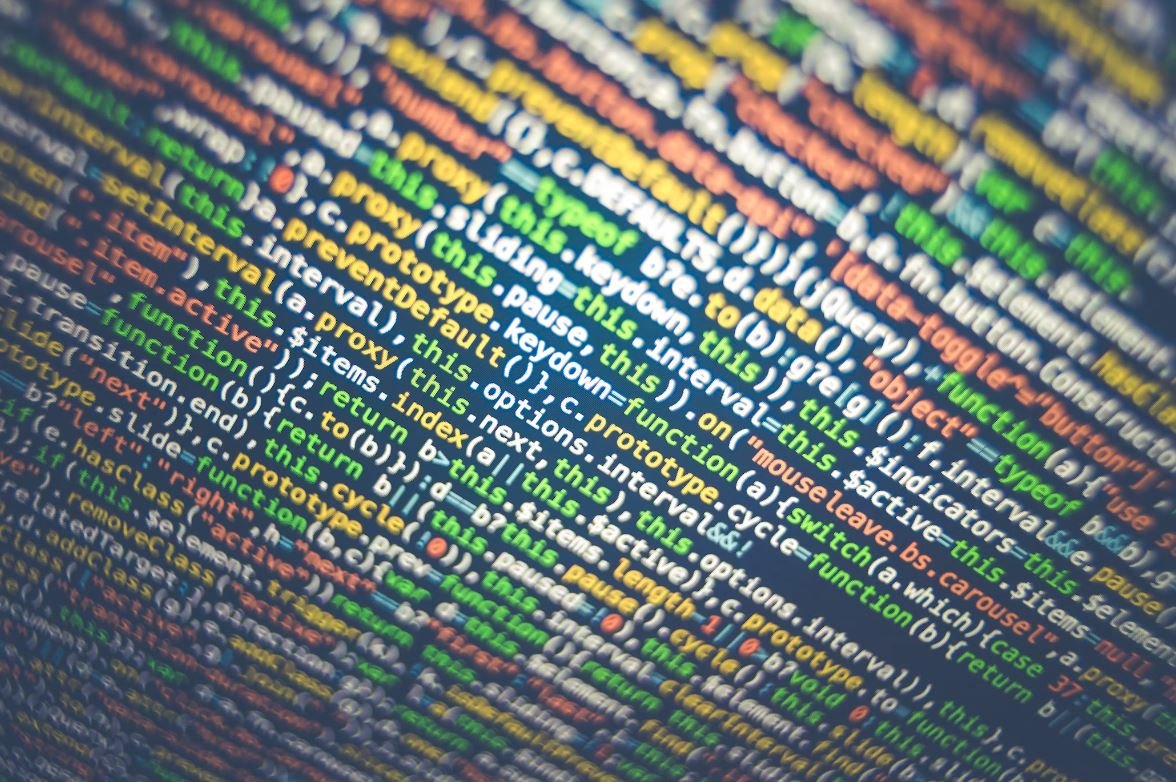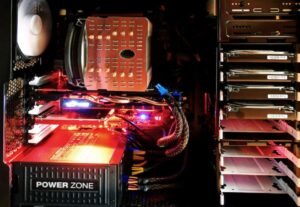OpenAI Founder
OpenAI is a renowned artificial intelligence research laboratory founded by Elon Musk, Sam Altman, Greg Brockman, Ilya Sutskever, John Schulman, and Wojciech Zaremba in December 2015. It aims to develop and promote friendly AI that benefits all of humanity.
Key Takeaways:
- OpenAI is an influential AI research laboratory established in December 2015.
- The founders include Elon Musk, Sam Altman, Greg Brockman, Ilya Sutskever, John Schulman, and Wojciech Zaremba.
- OpenAI focuses on creating safe and beneficial artificial intelligence.
Foundation and Mission
OpenAI was founded with the goal of advancing AI in a way that is safe and beneficial for everyone. The organization conducts extensive research to ensure that artificial intelligence does not pose any potential harm. It actively collaborates with other research institutions and organizations to enhance global cooperation in AI development, aiming to create a positive impact on society.
One interesting aspect of OpenAI’s mission is that it strives to provide public goods that help society navigate the path to AGI (artificial general intelligence), rather than focusing solely on commercial interests.
Current Research Areas
OpenAI’s research covers various domains within AI. They explore topics such as reinforcement learning, deep learning, natural language processing, robotics, and more. By conducting cutting-edge research, OpenAI aims to push the boundaries of AI capabilities and contribute to advancements in these fields.
Notable Achievements
OpenAI has made significant contributions and achievements in the field of AI. Some notable milestones include:
- Developing advanced language models like GPT-3, which has demonstrated impressive natural language processing capabilities.
- Creating reinforcement learning algorithms that have achieved remarkable performance in complex games like Dota 2.
- Pioneering research in unsupervised learning algorithms, enabling AI systems to learn without explicit human guidance.
Collaborations and Partnerships
OpenAI actively engages in collaborations and partnerships with other institutions and organizations to foster collaboration, knowledge sharing, and widespread benefits. By working together, these partnerships accelerate research progress and contribute to the development of safer and more powerful AI.
One interesting collaboration worth mentioning is OpenAI’s partnership with Microsoft. This partnership involves large-scale investments from Microsoft to support OpenAI in realizing its mission and developing artificial general intelligence.
Tables
| Year | Research Paper Titles |
|---|---|
| 2016 | Reinforcement Learning with Unsupervised Auxiliary Tasks |
| 2017 | Evolution Strategies as a Scalable Alternative to Reinforcement Learning |
| 2018 | Improving Language Understanding with Unsupervised Learning |
| Year | Achievements |
|---|---|
| 2016 | Demonstration of deep reinforcement learning in Atari games |
| 2017 | Development of Proximal Policy Optimization algorithm |
| 2018 | Release of OpenAI Gym |
| Year | Collaborators |
|---|---|
| 2016 | American Civil Liberties Union (ACLU) |
| 2017 | Google Brain |
| 2018 | Stanford Artificial Intelligence Laboratory |
Future Goals
OpenAI continues to push the boundaries of AI research and aims to make significant advancements in the coming years. Some key future goals include:
- Developing more sophisticated language models that understand and generate human-like text.
- Enhancing the performance of AI systems in complex real-world scenarios.
- Driving progress in robotics and autonomous systems.
It is exciting to see how OpenAI’s research and efforts will shape the future of artificial intelligence and benefit society as a whole.

Common Misconceptions
OpenAI Founder
Paragraph 1
Many people believe that the OpenAI founder is solely responsible for the development and advancement of the organization. This is not true as OpenAI is a collaborative effort with multiple individuals contributing to its success.
- The OpenAI founder is a part of a team of individuals.
- The founder works together with other professionals to drive OpenAI’s goals.
- The founder’s role involves overseeing the organization’s operations.
Paragraph 2
There is a misconception that the OpenAI founder solely makes all the strategic decisions for the organization. However, OpenAI follows a democratic approach in decision-making, where all team members contribute their insights and ideas.
- OpenAI’s decisions are made collectively by the team.
- The founder values input from the entire organization.
- OpenAI’s decision-making process is open and transparent.
Paragraph 3
Some people mistakenly believe that the OpenAI founder is always the public face and spokesperson for the organization. While the founder does represent OpenAI on various occasions, there are multiple individuals within the organization who share this responsibility.
- OpenAI has designated spokespersons who represent the organization.
- The founder shares the responsibility of communication with other team members.
- OpenAI ensures diverse representation when interacting with the public.
Paragraph 4
One common misconception is that the OpenAI founder possesses all the technical expertise and knowledge required for the organization’s work. However, OpenAI has a diverse team of experts in various fields who collectively contribute their skills and knowledge.
- OpenAI recruits professionals with different backgrounds and specializations.
- The founder collaborates with domain experts to drive OpenAI’s technical advancements.
- OpenAI values multidisciplinary expertise for a comprehensive approach to research and development.
Paragraph 5
There is a misconception that the OpenAI founder is solely driven by profit and personal gain. However, the founder is motivated by a broader mission to ensure that artificial general intelligence (AGI) benefits all of humanity and is handled appropriately.
- The founder’s primary focus is to align AGI with human values and global benefit.
- OpenAI operates under a mission-driven approach rather than solely pursuing individual gains.
- The founder’s decisions prioritize the long-term impact on society over short-term profits.

The Rise of OpenAI
OpenAI, the artificial intelligence research lab, has been making groundbreaking advancements in the field of AI technology. Founded by Elon Musk, Sam Altman, and others, OpenAI aims to develop and promote friendly AI for the benefit of all humanity. This article explores some of the notable achievements and contributions made by OpenAI.
Publications by OpenAI
OpenAI is committed to sharing its research findings and discoveries with the larger scientific community. The table below showcases some of the notable publications released by OpenAI researchers.
| Year | Title | Publication |
|---|---|---|
| 2018 | Unsupervised Translation of Programming Languages | arXiv |
| 2020 | Generative Modeling for Reinforcement Learning | NeurIPS |
| 2021 | DALL-E: Creating Images from Text | arXiv |
AI in Video Games
OpenAI has made significant advancements in developing AI models capable of playing complex video games at a high level. The following table summarizes some of the notable achievements in the field of AI gaming.
| Game | AI Model | Score/Accuracy |
|---|---|---|
| Dota 2 | OpenAI Five | 99.4% |
| StarCraft II | AlphaStar | Grandmaster level |
| Doom | DoomEG | Competitive against human players |
Language Models
OpenAI has developed advanced language models that can generate human-like text based on prompt inputs. The table below showcases some of OpenAI’s language models and their capabilities.
| Model | Training Data | Applications |
|---|---|---|
| GPT-3 | 45 terabytes of text | Content generation, chatbots |
| GPT-4 | TBA | Advanced natural language processing |
| Codex | Public code repositories | Automatic code generation |
Robotics and AI
OpenAI is actively exploring the integration of AI technologies into robotics. The following table highlights some of OpenAI’s significant contributions in the field of robotics.
| Project | Description | Year |
|---|---|---|
| Dactyl | Robotic hand manipulating objects with dexterity | 2018 |
| Rubik’s Cube | Robot solving the Rubik’s Cube single-handedly | 2019 |
| Multi-agent Soccer | AI-powered robots playing soccer as a team | 2021 |
Frequently Asked Questions
What is OpenAI?
OpenAI is an artificial intelligence research laboratory and company that aims to ensure that artificial general intelligence (AGI) benefits all of humanity. It is dedicated to advancing AI technology in a safe and beneficial manner.
Who founded OpenAI?
OpenAI was founded by a group of technology industry luminaries, including Elon Musk, Sam Altman, Greg Brockman, Ilya Sutskever, and Wojciech Zaremba.
What is the mission of OpenAI?
The mission of OpenAI is to ensure that artificial general intelligence benefits all of humanity. The organization aims to build AGI that is safe and beneficial, or help others achieve this outcome.
How does OpenAI conduct its research?
OpenAI conducts research in the field of artificial intelligence through a combination of theoretical work, empirical research, experimentation, and collaboration with the wider AI research community. Researchers at OpenAI work on a broad range of topics related to AI.
Does OpenAI provide any open-source software or AI models?
Yes, OpenAI provides open-source software and AI models, including frameworks like Gym for reinforcement learning and libraries like Transformers for natural language processing. OpenAI actively contributes to the open-source community to foster collaboration and development in the AI field.
How does OpenAI address safety concerns related to AI?
OpenAI is deeply committed to the safety of artificial general intelligence. The organization conducts research and invests in projects that focus on making AGI safe and driving the adoption of these safety measures across the AI community. OpenAI also advocates for cooperation between other AI research organizations to collectively address safety concerns.
Can I collaborate with OpenAI on AI research?
OpenAI actively encourages collaboration within the AI research community. The organization is known for its openness to partnerships and collaborations with other research institutions, academia, and industry. You can reach out to OpenAI for potential collaborations or explore their research initiatives to contribute.
Does OpenAI offer any AI-related services or products?
OpenAI offers a range of AI-related services and products. This includes APIs for language processing tasks, such as natural language understanding and language translation. OpenAI also develops and releases AI models that are available for use by developers and researchers.
How does OpenAI prioritize ethical considerations in AI development?
OpenAI places a high emphasis on ethical considerations in AI development. The organization actively works to ensure that AI technologies are designed and deployed responsibly, addressing biases, fairness, and potential negative social impacts. The ethical dimension is integrated into OpenAI’s research, practices, and decision-making processes.
Where can I get more information about OpenAI?
For more information about OpenAI, you can visit their official website at www.openai.com, where you can find detailed information about their research, projects, publications, team members, and achievements. OpenAI also maintains an active presence on social media platforms where they share updates and insights.




